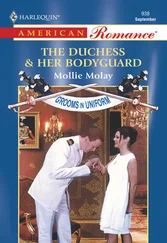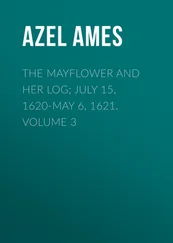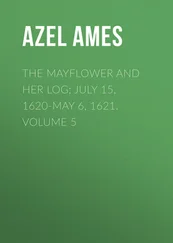Leo and the others must have read George Bernard Shaw’s preface to the play, The Devil’s Disciple . It’s GBS at his most tendentious and engaging.
I read The Devil’s Disciple with an appetite for its hidden magic over Leo. I found an unread edition of George Bernard Shaw’s Three Plays For Puritans on our bookshelves, a 1962 Penguin edition. When I opened it, I found the outer rims of the pages browned with time – it was as if the book had lain close to a fire, but it was the dull plod of second after second which had done this. I can see why the other two plays did not closely interest Leo and Filmer and the men. In Caesar and Cleopatra and in Captain Brassbound’s Conversion , a melodrama set on the coast of Morocco, there isn’t the same focus as in The Devil’s Disciple – the focus there being provided by Dick Dudgeon’s embrace of execution in the place of another man, the Reverend Anderson, in New Hampshire in 1777.
From my Sunday school days, the phrase Devil’s Disciple still carries with it a whiff of brimstone. In what sense was Dick Dudgeon the Devil’s disciple? (asked the old English mistress in me.) And how did Leo and the others see themselves under that banner too? Sergeant Bantry was a Catholic, and Jockey Rubinsky Jewish. In what sense were they devil’s disciples?
I studied the issue. It wasn’t an abstract matter for me. Even though George Bernard Shaw was playing with ideas in his safe study, or else his summer garden in Surrey, and did not have to face the blade himself, there was cogency for me and for Leo to what he wrote. As an introduction to the play, Shaw writes an essay called ‘On Diabolonian Ethics’, and in it he complains that while he was away from London, a theatrical director interpreted The Devil’s Disciple ’s willingness to save the life of Reverend Anderson by dying in his place as motivated by his love for young Mrs Anderson. That was to miss the entire point of the play, said Shaw. A glorious thing, the thing by which the Devil’s Disciples transcended Sydney Carton in A Tale of Two Cities , was to die for a man you didn’t know, for a man who had a wife you didn’t know, and whose features were unknown to you.
Shaw wrote:
But then, said the critics, where is the motive? Why did Dick save Anderson?… The saving of life at the risk of the saver’s own is not a common thing; but populations are so vast that even the most uncommon things are recorded once a week or oftener. Not one of my critics but has seen a thousand times in his paper how some policeman or fireman or nursemaid has received a medal, or the compliments of a magistrate, or perhaps a public funeral, for risking his or her life for another’s. Has he ever seen it added that the saved was the husband of the woman the saver loved, or was that woman herself, or was ever known to the saver as much as by sight? Never. When we want to read of the deeds that are done for love, whither do we turn? To the murder columns; and there we are rarely disappointed.
I’m sure the twenty condemned Malays for whose lives Leo and others of the Cornflakes gang had petitioned the Japanese were never far from the consciousness of Leo and the other Memerangs as they rehearsed the play. I prefer to believe that it was for those men that Leo was ready to die rather than for some flatulent concept of military honour. That he died neither for some bankrupt British officer code nor for the bankrupt code of his gaolers.
I imagine the play under way in their communal cage, with Leo playing his part, and Essie the servant girl asks him why he lets them call him the Devil’s disciple? And Richard replies, ‘Because it’s true. I was brought up in the other service; but I knew from the first that the Devil was my natural master and captain and friend. I saw that he was in the right, and that the world cringed to his conqueror only through fear…’
I can imagine Filmer, who had been to Oxford, explaining the meaning if any of the group were theologically timid – that Richard Dudgeon is not really speaking of the Devil, he is speaking of the God of Purposeful Love, a deity unhonoured in the Dudgeon household in the play but honoured by Richard.
It is touching to think that under Filmer’s direction, Leo played the scene in Act II in which he speaks at length with Mrs Anderson, played by Jockey Rubinsky (seriously it seems, and not for the easy laughs that derive from young men playing women). There is something almost consoling about that, the earnestness of two young men who would never touch a woman again, enacting sexual attraction.
I must curse GBS because he taught them how to do it, to be Devil’s Disciples. I must thank him for reinforcing the necessity of the path they were treading, so that they went with a certainty that transcended flags and empires and all that weary dross.
The reward for a good rehearsal is that Filmer reads us a Jeeves story by Wodehouse. You see behind the men’s faces that the more they enjoy that, the more they think: Maybe they’ll let us and the Malays live on too. But no one could say it, of course, because that would be a deadly bad omen.
When we read the whole play in our communal cell, Englishmen and Dutch and Chinese we had never seen applauded from their cells. Because by now Memerang fellows knew each other’s stories, the play was like the new conversation we had with each other. We were grateful. If George Bernard Shaw had walked along the gallery on the third level of Outram Road Gaol and appeared in front of our cage, we would have cheered him to the echo. So would the poor buggers in all the cells.
Hidaka’s brought a huge bag of Amanetto sweets, which he knows are my favourites. He did not want to stay though and looked evasive. I wonder is something about to happen.
There are possibilities other than the worst. They might even take us over to Changi, to the general military camp.
Just in case though, I put down all the love I can find in this sentence. For you, Grace. It’ll be wonderful if we meet again. It’ll be a wonderful life.
Hidaka’s sworn he’ll get this to you if I can’t.
In a tiny kolek or fishing-boat, two private soldiers, Dignam the Foreign Legionnaire, and Pauling, were still at large in January 1945. They would call at villages but then move on before they could be betrayed. They had travelled 3000 kilometres through enemy territory, and at Ramang Island off Timor were only 220 kilometres from an air force pick-up island, and only 800 from Darwin. By now, however, they needed to rest for days, and a village headman told the Japanese that they were there. They were taken to Dili in Timor where their torture was horrifying, and both, left alone in their cells at last, died of their injuries.
Then, in Singapore, on the morning appointed by the authorities, some four weeks before the war would end, guards came to the large communal cell at Outram Road Prison and tethered the arms of all the Memerang men behind their backs. Sentries went screaming along the galleries telling prisoners, Don’t look. Don’t look! So there is no record of anyone having seen Leo and his men descend to the ground floor. They were dressed only in their shirts and shorts, and their feet were bare. It might be a move to another prison – they could partly quell their fever of expectation with that idea. But they hadn’t been told to bring their mess-kits. They probably all noticed that fact. By the time they were put in a small bus with painted-out windows, Jockey probably knew. Did he tell Leo? Did he bespeak death with total clarity? The orderly says no. But surely he’d tell Leo, they were so close. Japanese documents say they behaved coolly, and with the example of Richard Dudgeon before their minds, it was quite possibly so. As well as that, Jockey Rubinsky’s attitude of not giving malign forces the satisfaction of showing obvious and reasonable fear was no doubt at play amongst all of them.
Читать дальше












